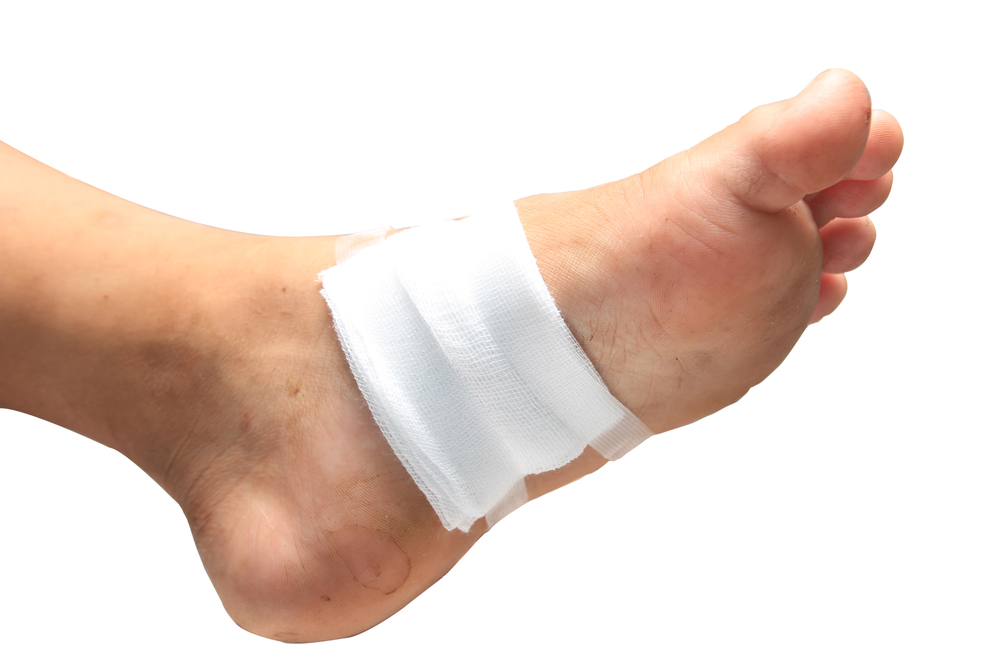The skin is an amazing sensory organ that protects the body from harmful elements, germs, and toxins, and also helps with regulating temperature and sensation. Wounds are caused by a cut, abrasion, or other trauma to the skin and can affect one or more layers. Superficial wounds typically affect only the skin’s outermost layer, the epidermis. Deeper wounds can also affect the lower layer (dermis), the cushioning subcutaneous fat tissue below that, and even—in worst case scenarios—underlying muscle, bone, nerves, and tendons. It is important to seek medical treatment for deeper wounds to prevent complications such as infection and damage to underlying structures. This is especially important for people with diabetes whose ability to detect and heal wounds is diminished due to poor circulation and nerve damage associated with this disease. If you have a wound on your foot that is painful, swollen, tender, red, or bleeding, seek the care of a podiatrist as soon as possible for prompt treatment.
Wound care is an important part in dealing with diabetes. If you have diabetes and a foot wound or would like more information about wound care for diabetics, consult with one of our podiatrists from Crosstown Podiatry. Our doctors will assess your condition and provide you with quality foot and ankle treatment.
What Is Wound Care?
Wound care is the practice of taking proper care of a wound. This can range from the smallest to the largest of wounds. While everyone can benefit from proper wound care, it is much more important for diabetics. Diabetics often suffer from poor blood circulation which causes wounds to heal much slower than they would in a non-diabetic.
What Is the Importance of Wound Care?
While it may not seem apparent with small ulcers on the foot, for diabetics, any size ulcer can become infected. Diabetics often also suffer from neuropathy, or nerve loss. This means they might not even feel when they have an ulcer on their foot. If the wound becomes severely infected, amputation may be necessary. Therefore, it is of the upmost importance to properly care for any and all foot wounds.
How to Care for Wounds
The best way to care for foot wounds is to prevent them. For diabetics, this means daily inspections of the feet for any signs of abnormalities or ulcers. It is also recommended to see a podiatrist several times a year for a foot inspection. If you do have an ulcer, run the wound under water to clear dirt from the wound; then apply antibiotic ointment to the wound and cover with a bandage. Bandages should be changed daily and keeping pressure off the wound is smart. It is advised to see a podiatrist, who can keep an eye on it.
If you have any questions, please feel free to contact our offices located in Wayne, Montclair, and Randolph, NJ . We offer the newest diagnostic and treatment technologies for all your foot care needs.

